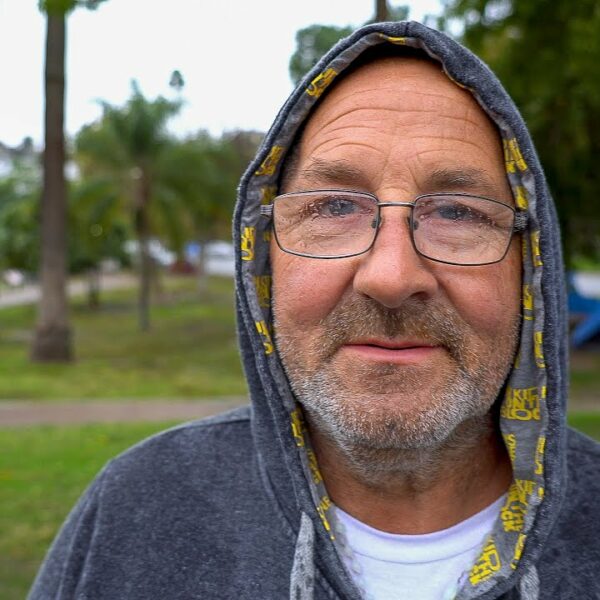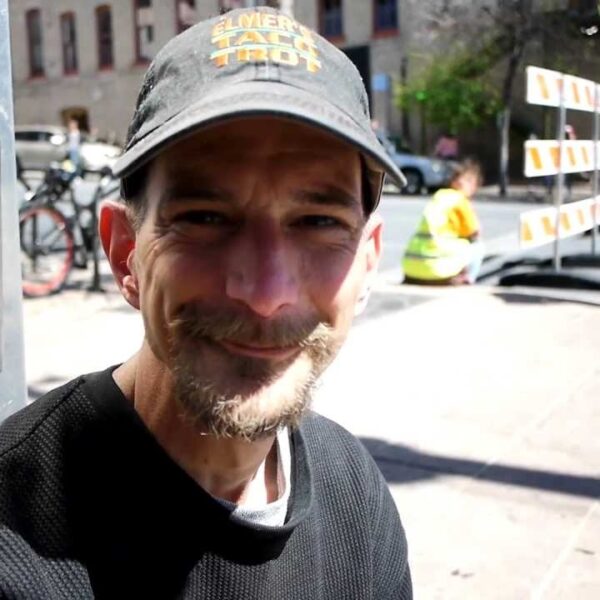New Law Punishes Homelessness While Making It Even Harder to Find Housing
Beginning in 2023, Missouri will make it illegal to sleep on state-owned lands. But we all know that sleepy public park picnickers have little to fear. The real target is homeless people who have little choice but to try and sleep in public places like under bridges or highway overpasses. Anyone who violates this new law will receive one warning. After that, they’ll be hit with either a $750 fine or a Class C misdemeanor charge with up to 15 days in prison.
As cruel as that already is, Missouri’s lawmakers aren’t stopping there. They’ve also built language into the Republican-backed measure that allows the state attorney general to sue any city that refuses to enforce this ban of theirs.
Taking it further, the law will take away funding for homeless services in cities with a higher-than-average unhoused population, which does not make sense. It also bans cities from using federal grants to build permanent housing options. Cities can only use that money for temporary shelters with strict rules for residents.
Now, this is surprising not because lawmakers have a long history of putting in place helpful policies that assist the unhoused population in their area. It’s surprising because politicians at least try to make it look like they’re not completely heartless.
In Missouri, they’re not trying anymore.
Who Does This Law Help?
It’s clear at a glance that this law is not designed to help homeless people in any way, shape, or form. Not even in that misguided “it’s for their own good” or “tough love” kind of way.
So, the question then becomes, who is this law supposed to help?
From what I can tell, this law is a massive win for NIMBYs and “concerned business owners” who don’t want to be forced to see people without homes on their daily commute but also don’t want to do anything to actually end homelessness.
The most telling piece of this law is the ban on using federal funding to construct permanent housing. Anyone who’s done a minimum level of research into the causes of and solutions to homelessness will know that permanent, affordable housing is the only way forward to a future where everyone is housed.
That’s not the future that Missouri lawmakers are interested in.
In fact, they would much prefer if all of the unhoused people in their state just got up and moved somewhere else. If that’s not possible, they should at least stay locked away in a controlling shelter, or jail, or wherever. No one seems to care where these people end up as long as they can’t be seen or heard from there.
Who Does This Hurt?
This law will, of course, be devastating to any unhoused people living in or traveling through the state of Missouri and possibly other states if it catches on. And the effects of it can be far-reaching, even for someone who eventually escapes the state.
Say that someone with little to no other options is found sleeping on state-owned land for the second time. Either they will receive a $750 fine (which would be an insurmountable sum even for most households that can afford stable housing), or they’ll be charged with a Class C misdemeanor.
Either one of these punishments can snowball and keep a person stuck on the streets. Whether the high fine pushes you into debt or wage garnishment, or a criminal record makes potential landlords turn you away left and right, your state-mandated punishment for being homeless is to stay homeless. And there’s little doubt you will incur more fines and charges along the way.
But don’t think this won’t affect housed people, too. Setting aside the fact that anyone could lose their seemingly stable housing with a bit of bad luck, all residents of Missouri will suffer. They will have to live in a place where resources that could be going toward helpful programs and services are instead being spent on actively harming the poorest and most vulnerable Missourians.
Wouldn’t you rather have a new elementary school or something?
Taking Two Steps Backward and Calling it Forward
Perhaps the most out-of-touch thing about this law is how proponents frame it as a “new approach” to addressing homelessness. In reality, it’s just the same thing we’ve been trying and failing to make work for decades.
Without an ounce of self-awareness, Sen. Holly Thompson Rehder, R-Sikeston, said, “giving homeless individuals a free apartment is not getting to the root of the problem.” Presumably with a straight face, though I don’t see how.
She continues with 30-year-old talking points like, “They need mental health treatment, substance abuse counseling, and support beyond just a roof over their head.”
Senator Rehder bucks solving the problem of people not having housing by giving them housing. Instead, she prefers turning her back on all the research we have to support the Housing First model (which is not called the Housing Only model for a reason, by the way) and going back to the treatment first model, which has been proven not to work. At least if your goal is ending homelessness. If your goal is keeping people contained within shelters and treatment facilities while spending a lot of money to see very few results, then it works great.
These short-term shelters that cities must build instead of actual permanent housing will also need to enforce strict rules like six-month stay limits, sobriety screenings, and mental health evaluations. They’ll also be monitored regularly by police and social workers and collect data about residents’ mental health, substance use, and other issues. The more you learn about them, the less they sound like compassionate places of respite and the more they seem like homeless jails.
Collecting all the unhoused people you can into cramped so-called “housing” where they can be observed like lab rats and forced to behave in a certain way doesn’t sound like a step forward to me.













